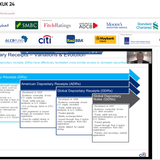After the sovereign’s US$16.5bn return to the international capital markets in April, Argentine provinces and corporates are lining up issuances with Cablevision the first corporate to access the markets behind the Province of Buenos Aires starting the sub-sovereign trend.
Currently, Petrobras Argentina, The Province of Salta, Arcor and Celulosa Argentina are all looking at tapping the markets.
Although at the macro level the Argentine economy is underleveraged, and could take on more leverage if there are investment opportunities, the number and speed of issuances since the sovereign opened the country to the international markets has led to concerns over pricing.
“There could be a correction ahead of us, and there is a valid concern that issuers are pricing tighter than they would normally do so,” said Jorge Piedrahita, CEO of Torino Capital.
Although there is a chance of further spread compression in the markets, it will likely be limited. “Most of the money will be made from coupons in the near future.”
Slightly skewed pricing, combined with the increasing number of issuances means investors will be more careful with who they pick.
“If 2nd and 3rd tier names were to become active in the markets, they could make investors hesitant,” Piedrahita stated, adding that fresh issuers would be wise to pay a little more interest given the risk.
Argentine provinces have been particularly active since the sovereign’s return. Piedrahita noted that investors would have to be careful of which names to choose.
The Province of Salta would likely have to offer a higher yield than the wealthier provinces of Mendoza or Cordoba.
By allowing Argentine provinces to finance their budget deficits through external debt, the government could be exposing entities that it would be unable to assist in the event of a default.
“Many investors view the provinces similarly to the sovereign. Should they run into trouble and the sovereign be unable to assist, there could be significant ramifications,” Piedrahita noted.









